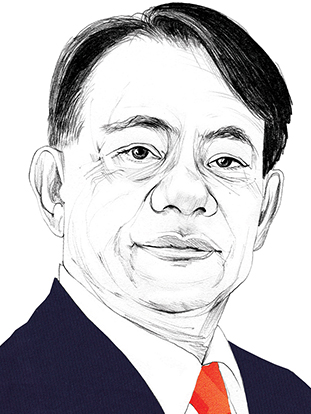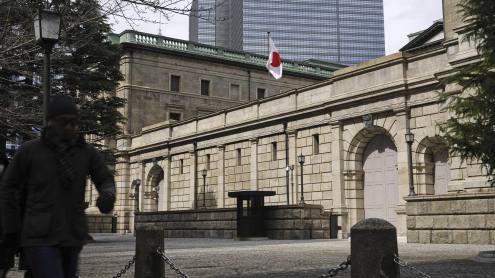The Covid-19 pandemic is taking a devastating toll across Asia and the Pacific. The appalling loss of life, the deep restrictions on movement and social interaction, and the staggering impact on economic activity have touched every corner of our region. As communities, governments and the private sector grapple with the immediate impacts of the pandemic, we must also define the course for recovery and ensure the choices we make today will lead toward a more inclusive, resilient, sustainable, and prosperous future for the region.
After a decade of steady growth averaging about 6.6% annually, the economies that collectively comprise developing Asia are set to contract in 2020. This is the first contraction in nearly six decades.
While we forecast that growth will rebound to 6.8% in 2021, this is in large part because next year’s output is being compared with a very weak 2020. The region’s gross domestic product in 2021 will remain well below what had been envisioned before Covid-19 struck.
Responding to crisis
Governments continue to face tremendous challenges in providing immediate support to their people and navigating the complex process of safely reopening their economies. Unless effective solutions are found, this economic toll risks a reversal of the social development and impressive reduction in poverty in Asia and the Pacific in recent decades.
To support our developing members, the Asian Development Bank (ADB) responded rapidly when the crisis hit and established a comprehensive, three-pillar $20bn support package in April.
First, from February, ADB began providing grants and technical assistance to support its developing members in addressing the urgent health crisis, including procuring ventilators, test kits and personal protective equipment, as well as shoring up straining health services.
Second, in April, as part of the package, we opened a new financing modality called the Covid-19 Pandemic Response Option (CPRO), through which we are providing quick-disbursing budget support to help governments finance their countercyclical economic stimulus packages, including crisis-related social protection programmes, with emphasis on the poor and vulnerable, especially women and children.
And third, we are supporting the private sector by helping companies continue to operate, employ staff and deliver essential services.
By mid-September, we had committed about $11.2bn towards Covid-19-related operations, including $8.2bn of CPRO for 19 members and $1.7bn for the private sector. Co-financing committed by our partners totalled about $7.2bn.
Meeting the rebuilding challenges
Even before the pandemic hit, Asia and the Pacific was grappling with several persistent development challenges. Extreme poverty still exists in our region, while income inequality is widening in many countries, and the natural environment is under attack from the impacts of climate change, ocean pollution and natural disasters. The poor and vulnerable often bear the brunt of these impacts.
These realities must be considered as governments shape their recovery and rebuilding strategies. In this regard, I believe five questions deserve special attention. What shape will globalisation take after Covid-19? How can we build human capital to ensure everyone has opportunities to participate in the recovery? How can we bridge the digital divide? How can we lay the foundation for a greener and more sustainable future? And how can economies mobilise even larger resources for development?
Coming together
While there are suggestions that recent border closures and travel restrictions are signs that globalisation has ground irreversibly to a halt, I believe that globalisation will return, but in a different shape.
To prepare wisely for globalisation in the post-Covid era, ADB will renew efforts to promote regional co-operation and integration by helping our developing members secure more diversified value and supply chains. We will also promote regional public goods for better collective prevention of disease outbreaks; adaptation and mitigation of climate change impacts; and enhancement of the regional financial safety net.
Investing in human capital
As we help countries recover from the pandemic, we should not lose sight of chronic challenges such as worsening income inequality, the rising burden of non-communicable diseases and demographic changes.
To address these, we need to strengthen investments in health, education and social protection, so that wellbeing and opportunities are assured for all members of society — including women, girls and marginalised populations.
In the realm of public health, we have to build health systems where all people can access universal health coverage services at an affordable cost, while maintaining the health system’s financial sustainability.
Accelerating progress in gender equality is also our priority. Improving women’s and girls’ access to vital infrastructure — such as healthcare, water and sanitation, electricity, and safe and affordable mobility — will be particularly important in the recovery phase. We will increase our efforts to help women and girls seize opportunities such as employment, access to financial and economic assets, education and skills development.
Bridging the digital divide
We must accelerate the digital transformation that we have been seeing during the pandemic. ADB will strengthen its investments in information technology and data for health, education, and financing for micro, small and medium-sized enterprises, while also addressing cyber security.
There is an increasing concern that the digital divide is widening and that digital access remains a barrier for the poor. For example, in the education sector, the massive disruption of Covid-19 has put basic education out of reach of many children who lack access to the internet. Expanded access to affordable and reliable internet connectivity has become a new priority for developing Asia to empower people to be a productive workforce in a digital economy.
A more resilient and green society
As countries plan ahead, attention must return to ensuring a low-carbon recovery, while at the same time improving climate and disaster resilience.
ADB will help governments and businesses move in this direction by continuing to pursue our two goals in addressing climate change: $80bn cumulative climate investment and 75% of total committed operations in number by 2030. Investing in infrastructure that satisfies G20 Principles for Quality Infrastructure Investment should be an important part of such efforts.
In addition to an increase in the total volume of investment, we need to shift the nature of interventions, requiring concerted long-term action across policy, governance, capacity and finance domains.
For example, in the context of the growing tendency of choosing private vehicles to avoid infection during the recovery phase, it is important to rebuild confidence in public transport to reduce emissions and enhance air quality.
Introducing a carbon tax would help drive the region’s economies towards an environmentally sustainable path. Promoting thematic bonds, such as green and blue bonds, will mobilise private financial resources to investments that bolster a resilient and green society.
Mobilising domestic resources
All of the key areas I have identified so far require governments to improve their own capacity to mobilise financial resources while managing debt sustainability. I firmly believe that one of the keys to success in achieving the UN Sustainable Development Goals (SDGs), in a world reshaped by Covid-19, will lie in strengthening domestic resource mobilisation and international tax co-operation.
In the wake of the pandemic, much of developing Asia faces significant pressures on budgets and on public debt resulting from large-scale stimulus expenditure programmes and declines in tax revenue.
As recovery takes hold, governments will need to gradually ease stimulus measures and strengthen domestic resource mobilisation to ensure debt sustainability. To improve tax yields in a fair and equitable manner, governments must co-operate more closely to manage aggressive tax planning and combat tax evasion. This requires a higher level of participation in international initiatives such as the Inclusive Framework on Base Erosion and Profit Shifting (BEPS) and the Global Forum on Transparency and Exchange of Information for Tax Purposes.
To help address these issues, ADB is establishing a regional hub on domestic resource mobilisation and international tax co-operation. Under this, ADB will facilitate knowledge sharing between developing members and their development partners on how to balance raising tax revenue while promoting economic activity, and how to adopt international standards on anti-BEPS practices and tax transparency.
Rebuilding in the new normal
Beyond Covid-19, there will be a great opportunity to set out new directions and refocus on the core targets of the SDGs.
As Asia and the Pacific continues its development journey beyond Covid-19, ADB will be supporting the region towards a new normal that is even more prosperous, inclusive, resilient, and sustainable than before.
I firmly believe that our shared commitments, and partnerships with our membership and development partners, will lead our region to new levels of growth, trust and collective wellbeing in the years ahead.
Masatsugu Asakawa is president of the Asian Development Bank.












